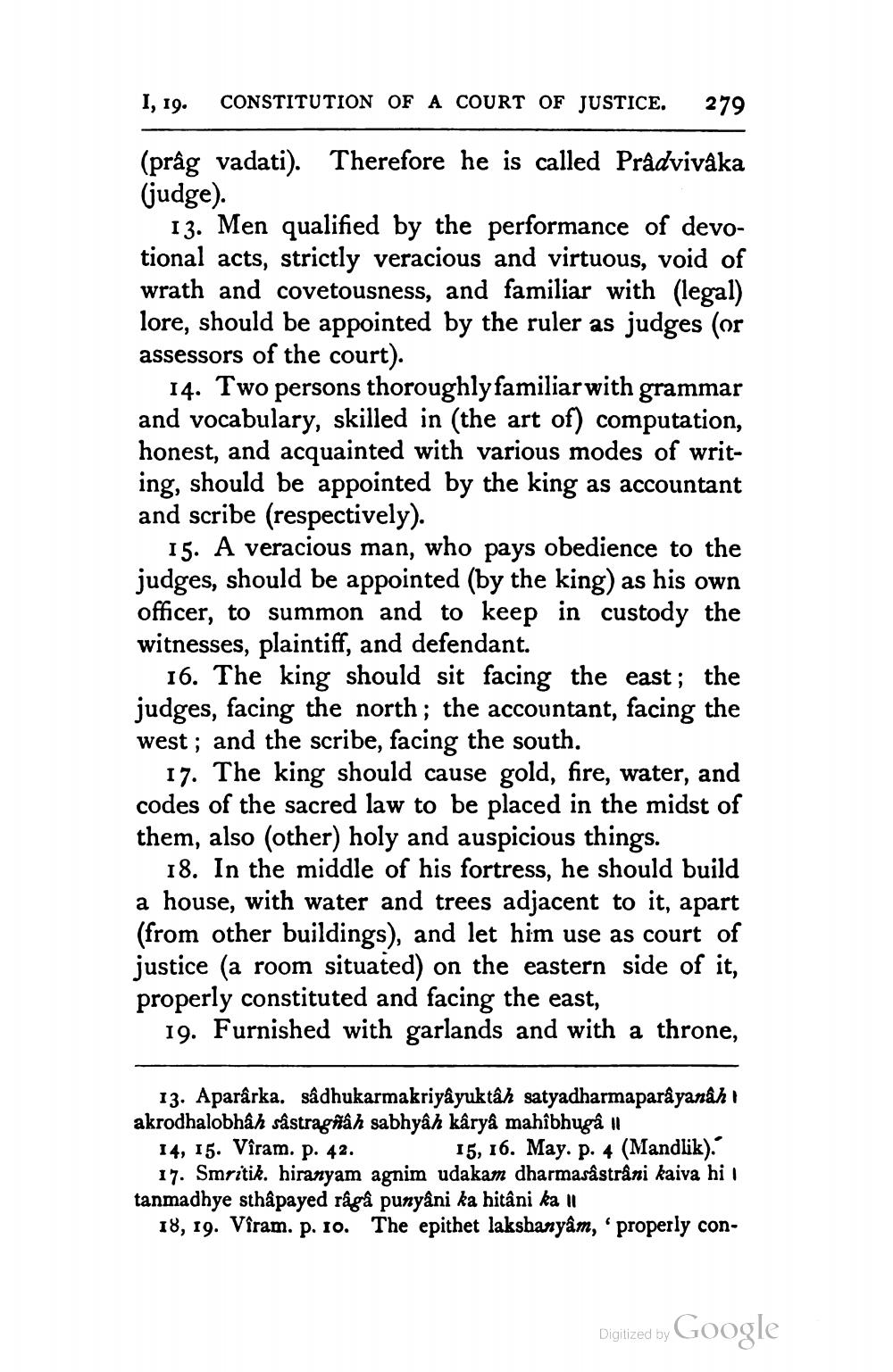________________
I, 19.
CONSTITUTION OF A COURT OF JUSTICE.
279
(pråg vadati). Therefore he is called Prådviváka (judge).
13. Men qualified by the performance of devotional acts, strictly veracious and virtuous, void of wrath and covetousness, and familiar with (legal) lore, should be appointed by the ruler as judges (or assessors of the court).
14. Two persons thoroughly familiar with grammar and vocabulary, skilled in (the art of) computation, honest, and acquainted with various modes of writing, should be appointed by the king as accountant and scribe (respectively).
15. A veracious man, who pays obedience to the judges, should be appointed (by the king) as his own officer, to summon and to keep in custody the witnesses, plaintiff, and defendant.
16. The king should sit facing the east; the judges, facing the north; the accountant, facing the west; and the scribe, facing the south.
17. The king should cause gold, fire, water, and codes of the sacred law to be placed in the midst of them, also (other) holy and auspicious things.
18. In the middle of his fortress, he should build a house, with water and trees adjacent to it, apart (from other buildings), and let him use as court of justice (a room situated on the eastern side of it, properly constituted and facing the east,
19. Furnished with garlands and with a throne,
13. Aparârka. sådhukarmakriyâyuktah satyadharmaparåyanahi akrodhalobhah sâstragrâh sabhyâh kâryâ mahîbhuga 11
14, 15. Vîram. p. 42. 15, 16. May. p. 4 (Mandlik).'
17. Smritik. hiranyam agnim udakam dharmasastrani kaiva hi i tanmadhye sthapayed råga punyâni ka hitâni ka il
18, 19. Vîram. p. 10. The epithet lakshanyâm, ' properly con
Digitized by Google




